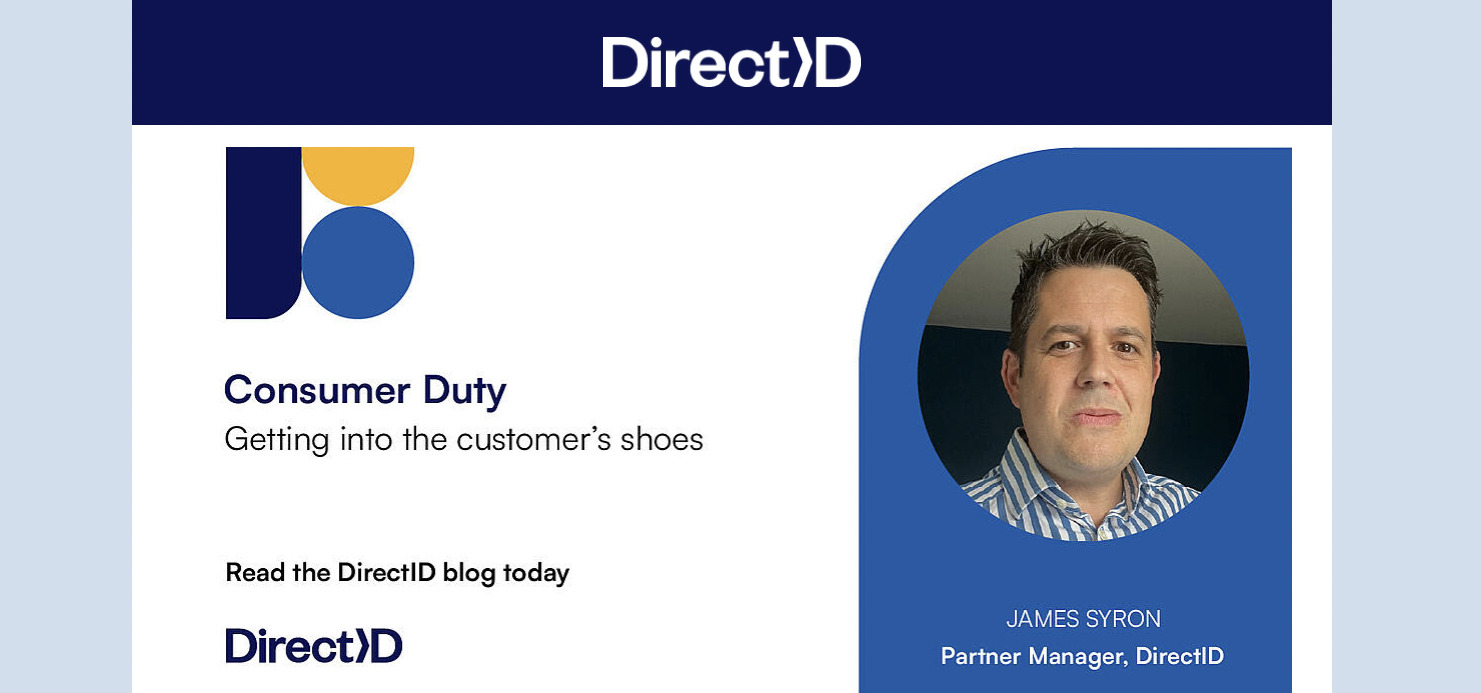“Consumer Duty: Getting Into The Customer’s Shoes” by Direct ID
In today’s world, we’ve made it pretty complicated to borrow a buck.
Innovation and technology have birthed a new generation of financial products - many of these are complex for consumers to navigate and self-serving in nature.
Where in past years consumers have relied on banks and financial institutions for the financial products they need, such as loans and mortgages, there’s a pressure to understand a world filled with new tech products - the likes of crypto-currency and non-fungible token financing.
While technology is here to make life simpler, we often find additional complexity in the products we create.
Interacting with customers through a fully digital journey has removed the opportunity for conversation. Consumers are often left confused and struggling to fully understanding the potential outcomes and dynamics of financial products.
Digital journey optimisation often focuses on optimising a process for conversion increase instead of providing the consumer all the information they need to know. With the gold rush to digitisation and optimisations, it’s no surprise the FCA demands higher standards to keep the pace with technology.
If there’s one certainty, the world of digital services is here to stay. According to McKinsey, 10 years of online adoption was compressed into just three months due to the pandemic. This has created a seismic shift in consumer behaviour that would usually take decades.
The Consumer Duty
This is one of the key reasons the FCA has consulted on the Consumer Duty, set to be introduced from April 2023.
Lenders will be tasked to ensure transparency across a remote process and act to deliver the right outcome for the customer. Not an easy task considering the continuous information required - and for this to be served in a consumer engaging manner.
Sheldon Mills, Executive Director of Consumers and Competition at the FCA, says the new duty is needed because consumers are too often “not given the information they need to make good decisions and are sold products or services that do not offer the benefits they might expect”.
The onset of the Consumer Duty shifts away from a principle-based approach to one based on outcomes. It aims to put lenders “into a customers’ shoes”.
The duty has a central consumer principle that a business “must act to deliver good outcomes and to be able to evidence it”. Reviewing complaint MI is no longer sufficient. Achieving ‘good outcomes’ is the FCA raising standards from treating customers fairly and making lenders more accountable for their customers financial wellbeing. A complex matter when considering the current backdrop of inflation plus the cost of living and business crises.
The only way to achieve this is by increasing engagement and getting to know the customer better. A difficult challenge in the remote world.
In a recent survey undertaken by EY, “Forty-two per cent of UK financial services firms intend to use a combination of data, testing, and enhanced monitoring to evidence ‘good outcomes’ for customers”
Pro-activity V’s Reactivity
Is monitoring enough when the regulator is asking lenders to act? Consumers are susceptible to a variety of independent forces that can positively and negatively impact their financial wellbeing. Lenders need to understand financial trajectory to act and evidence good outcomes.
The use of open banking by both lenders and consumers is going to be critical to help. The FCA has already praised the use of spending data to identify customers at risk of problem gambling during their work on the Fair Treatment of Customers. How can the use of a relatively new rich insight go even further and help lenders be even more customer centric?
Bureau credit data
Traditional credit information such as bureau data has enabled a vibrant economy but does not have all the answers needed today. It provides insight on the customer’s previous credit performance but does not include expenditure. How can you act to ensure the right outcomes when it is already too late?
Bureau data is also not typically used for marketing purposes to provide more relevant products and services to existing customers. This prevents lenders helping customers by providing more appropriate products and services.
Historically, so much emphasis and focus has been put on the initial customer acquisition decision. Little thought has been given about the continued management of the customer destined to blindly weave down the credit lifecycle. This was satisfactory during the backdrop of stability but may not be sufficient to the regulator in the current unprecedented climate.
As inflation bites, it’s going to be more important that lenders keep informed of their customers financial wellbeing and nudge them away from any un-intended harms. It’s difficult to envisage any other way to monitor a consumer’s real expenditure without access to their banking data.
____
Read the full article here.


